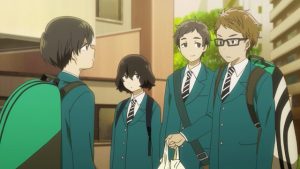 I said it last week about Kono Oto Tomare and I’ll say it now about Hoshiai no Sora – it’s not easy to do what it does as well as it does. The best character-driven series almost always appear to be effortless, and that makes it very easy to sell them short. It’s the same syndrome, really, as the awards voters in the Oscars et al almost always preferring grandstanding “apotheosis” performances over “chameleon” ones where the actor disappears into the role. Sizzle beats steak 9 times out of 10.
I said it last week about Kono Oto Tomare and I’ll say it now about Hoshiai no Sora – it’s not easy to do what it does as well as it does. The best character-driven series almost always appear to be effortless, and that makes it very easy to sell them short. It’s the same syndrome, really, as the awards voters in the Oscars et al almost always preferring grandstanding “apotheosis” performances over “chameleon” ones where the actor disappears into the role. Sizzle beats steak 9 times out of 10.
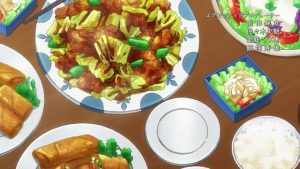 As with Tsuki ga Kirei, the word that most readily springs to mind for me with Hoshiai no Sora is “natural”. There’s a seamless flow to events but not only that, the events themselves play out in a way that seems very organic and real. You feel as if you’re getting to know these characters without much in the way of dialogic exposition. You know them because you see on their face (Touma’s mother is a perfect – and revolting – example) how they react to situations. You watch how they interact with other. And of course 8th-graders are nowhere near as good as disguising their inner workings as they think they are, so for as skilled a writer/director as Akane Kazuki that’s all the expository weaponry you need.
As with Tsuki ga Kirei, the word that most readily springs to mind for me with Hoshiai no Sora is “natural”. There’s a seamless flow to events but not only that, the events themselves play out in a way that seems very organic and real. You feel as if you’re getting to know these characters without much in the way of dialogic exposition. You know them because you see on their face (Touma’s mother is a perfect – and revolting – example) how they react to situations. You watch how they interact with other. And of course 8th-graders are nowhere near as good as disguising their inner workings as they think they are, so for as skilled a writer/director as Akane Kazuki that’s all the expository weaponry you need.
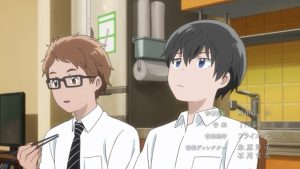 The character who comes into focus this week is Ameno Itsuki (Matsuoka Yoshitsugu), who seemed like one of the more mild-mannered members of the soft tennis club. The catalyst for this is Touma’s decision to indoctrinate Maki into the sport by playing a series of matches (who knew you had to tuck in your shirt to play soft tennis?). Not surprisingly Maki proves to be a natural. grasping the basics of the game with irritating (to everyone including his partner, Touma, who barely gets to play a stroke) rapidity. While Maki has clearly done a bit of homework he doesn’t have an encyclopedic knowledge of the sport, but what he does have is a keen eye for observation and an unerring instinct for the mechanics of the sport (not to mention his natural dexterity).
The character who comes into focus this week is Ameno Itsuki (Matsuoka Yoshitsugu), who seemed like one of the more mild-mannered members of the soft tennis club. The catalyst for this is Touma’s decision to indoctrinate Maki into the sport by playing a series of matches (who knew you had to tuck in your shirt to play soft tennis?). Not surprisingly Maki proves to be a natural. grasping the basics of the game with irritating (to everyone including his partner, Touma, who barely gets to play a stroke) rapidity. While Maki has clearly done a bit of homework he doesn’t have an encyclopedic knowledge of the sport, but what he does have is a keen eye for observation and an unerring instinct for the mechanics of the sport (not to mention his natural dexterity).
 The effect of Touma and (mostly) Maki plowing through the opposition is multifold. Itsuki shows his hothead side by deciding the directly target (ouch) Maki every chance he gets. But all this does is accelerate Maki’s evolution. What happens next threatens the club itself – Maki declares that the others are “awful” for not being able to handle a newbie, and rather than defend them Touma blows his head gasket and agrees before storming off and not showing up to practice the next day. The issue here, of course, is that if indeed the club is awful – and at the very least they’re overmatched against a rookie to the sport – the responsibility for that lies on the shoulders of the captain.
The effect of Touma and (mostly) Maki plowing through the opposition is multifold. Itsuki shows his hothead side by deciding the directly target (ouch) Maki every chance he gets. But all this does is accelerate Maki’s evolution. What happens next threatens the club itself – Maki declares that the others are “awful” for not being able to handle a newbie, and rather than defend them Touma blows his head gasket and agrees before storming off and not showing up to practice the next day. The issue here, of course, is that if indeed the club is awful – and at the very least they’re overmatched against a rookie to the sport – the responsibility for that lies on the shoulders of the captain.
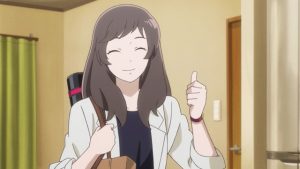 The craptastic home life these kids (at least some of them) are dealing with is as or more important to Hoshiai as the sport (as lovingly as the latter is treated). This is Akane, of course things are going to get dark and being cute children offers no armor with him. Touma’s unhappiness is less overtly dramatic than Maki and Nao’s (stay tuned) but no less sad for that – the way his mother treats him is abusive, make no mistake, even if she doesn’t raise a hand to him. He has his brother of course, and it’s clear Ryouma is doing everything he can to be a loving parental figure in Touma’s life, but being loathed by your own mother is incredibly damaging to a young child.
The craptastic home life these kids (at least some of them) are dealing with is as or more important to Hoshiai as the sport (as lovingly as the latter is treated). This is Akane, of course things are going to get dark and being cute children offers no armor with him. Touma’s unhappiness is less overtly dramatic than Maki and Nao’s (stay tuned) but no less sad for that – the way his mother treats him is abusive, make no mistake, even if she doesn’t raise a hand to him. He has his brother of course, and it’s clear Ryouma is doing everything he can to be a loving parental figure in Touma’s life, but being loathed by your own mother is incredibly damaging to a young child.
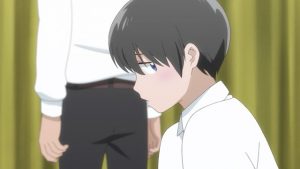 Meanwhile, there’s Itsuki. Already seething after getting schooled by Maki (who’s off keenly observing the girls’ team while Touma’s away), he totally loses it when a couple of A-holes bully him for having no mother at home. He whacks the ringleader on the head with his racket (note that soft tennis rackets are much thinner and lighter than traditional tennis ones – almost akin to a badminton racket) causing a minor yet spectacular injury. As horrible as the abuse was the way Itsuki calmly went about this was quite disturbing, and I was frankly surprised he didn’t get suspended for it. But the advisor (who’s been named “Sakurai Takyuyi”, ROFL) takes Itsuki’s side more or less. And once the others share with Maki the horrifying reason for Itsuki’s sensitivity, it’s hard to judge him too harshly for what he did.
Meanwhile, there’s Itsuki. Already seething after getting schooled by Maki (who’s off keenly observing the girls’ team while Touma’s away), he totally loses it when a couple of A-holes bully him for having no mother at home. He whacks the ringleader on the head with his racket (note that soft tennis rackets are much thinner and lighter than traditional tennis ones – almost akin to a badminton racket) causing a minor yet spectacular injury. As horrible as the abuse was the way Itsuki calmly went about this was quite disturbing, and I was frankly surprised he didn’t get suspended for it. But the advisor (who’s been named “Sakurai Takyuyi”, ROFL) takes Itsuki’s side more or less. And once the others share with Maki the horrifying reason for Itsuki’s sensitivity, it’s hard to judge him too harshly for what he did.
 Families are tough, man. But Akane has given both Touma and Itsuki (his sister, captain of the girls’ team) supportive older siblings, and Maki a loving if somewhat scattered and overworked mom – showing us the hopeful side of family life as well as the brutal. These kids are genuinely interesting people, perhaps in part because of that adversity. Once Maki accepts Touma’s offer he throws himself into the club full-bore, breaking the team down and starting to rebuild it. He’s also a ridiculously good cook. Then we have Kanako, who’s always hovering at the side of frame, watching and occasionally offering a wry adolescent witticism – just what’s driving her here? It’s all terrific storytelling, plain and simple, and the stage is being expertly set for Hoshiai no Sora to keep raising its game.
Families are tough, man. But Akane has given both Touma and Itsuki (his sister, captain of the girls’ team) supportive older siblings, and Maki a loving if somewhat scattered and overworked mom – showing us the hopeful side of family life as well as the brutal. These kids are genuinely interesting people, perhaps in part because of that adversity. Once Maki accepts Touma’s offer he throws himself into the club full-bore, breaking the team down and starting to rebuild it. He’s also a ridiculously good cook. Then we have Kanako, who’s always hovering at the side of frame, watching and occasionally offering a wry adolescent witticism – just what’s driving her here? It’s all terrific storytelling, plain and simple, and the stage is being expertly set for Hoshiai no Sora to keep raising its game.


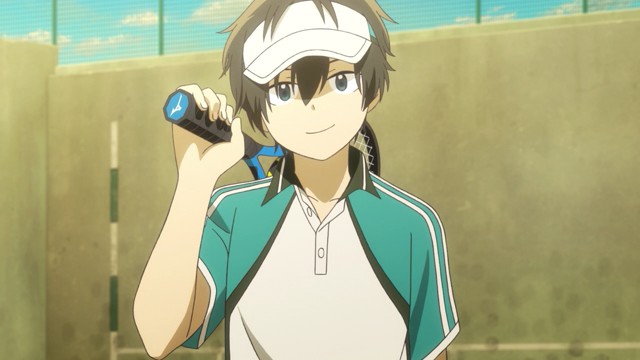
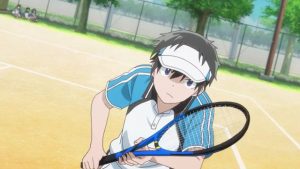
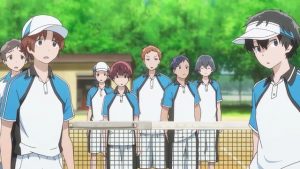
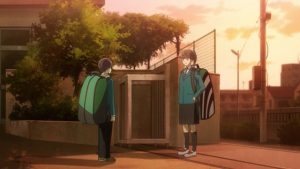
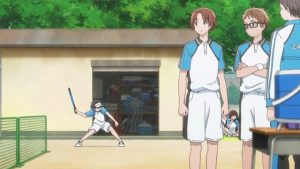
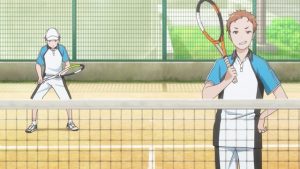

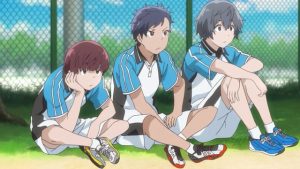
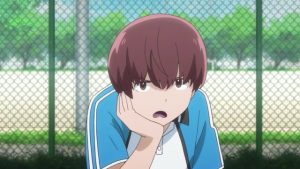
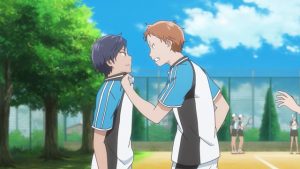
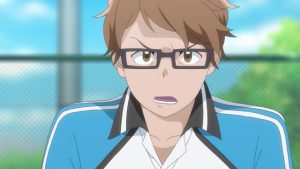

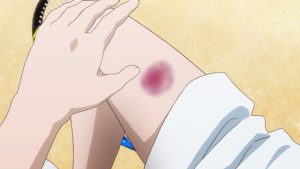
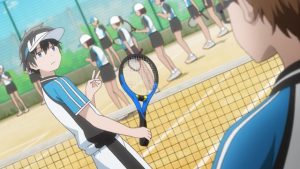
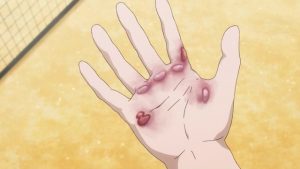
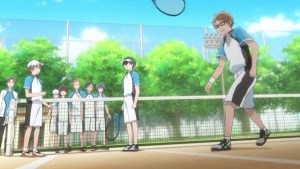
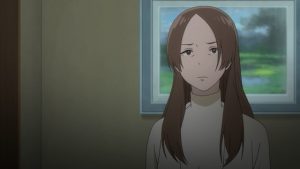
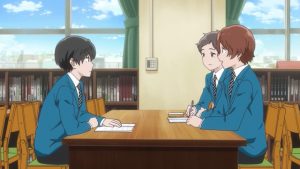
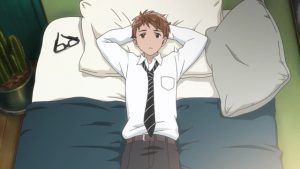
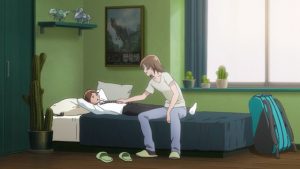

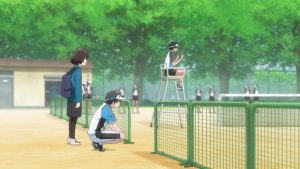


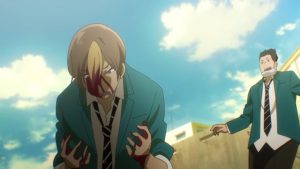

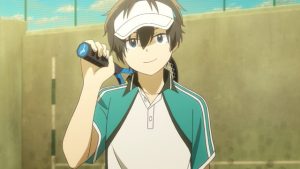
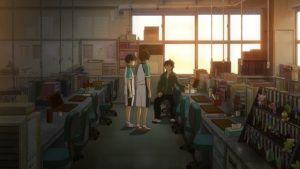
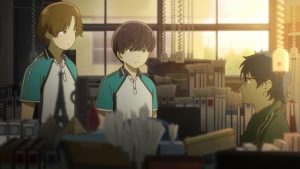
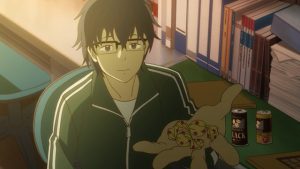
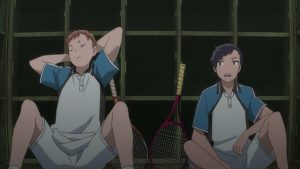
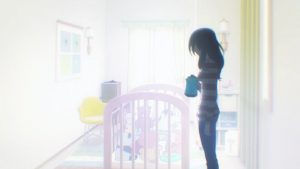
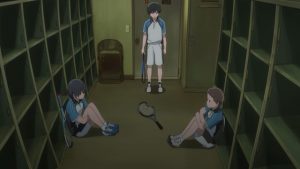
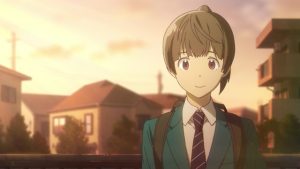
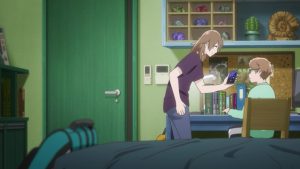

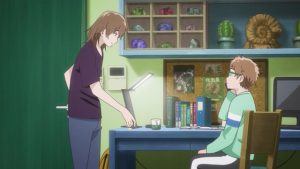
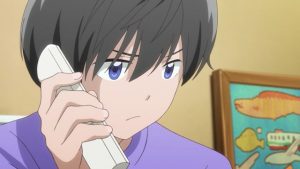
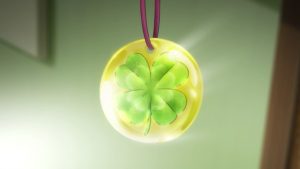
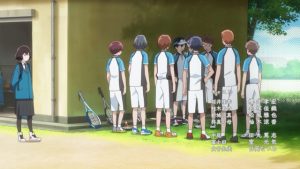
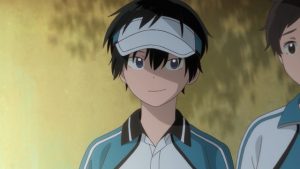
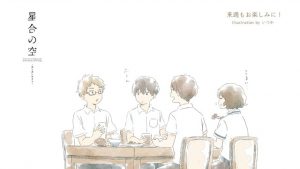
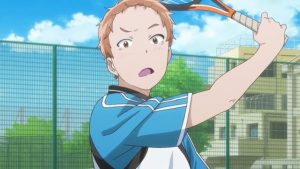
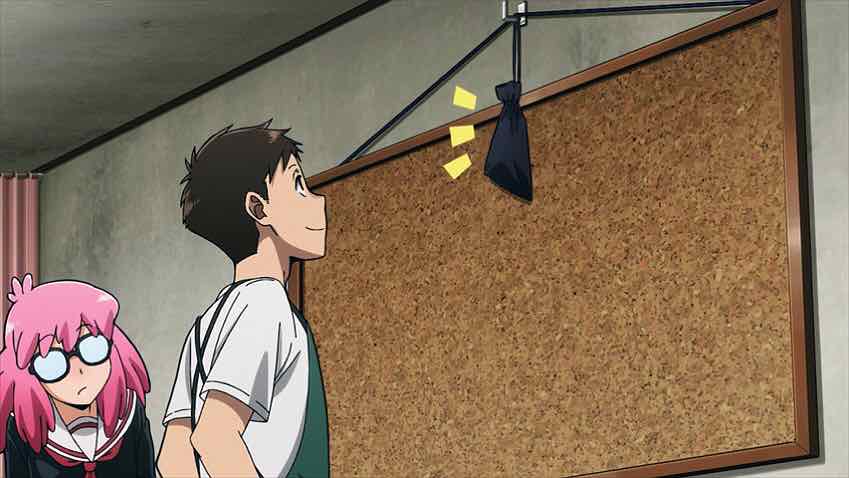
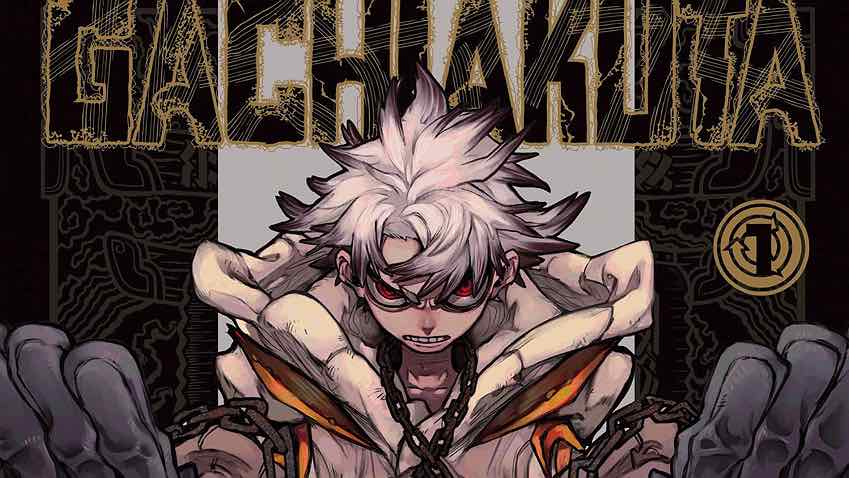
Deluxe
October 25, 2019 at 10:34 pmSports series aren’t my jam usually but Hoshiai is actually really good. This is drama for sure but it’s not overly bleak or depressing the way something like Sangatsu no Lion is. You care for these characters because their struggles are genuine, and they are not constantly crying over them.
This show is also quite the visual treat, and the fact that it is an original means that the directors and staff can use the anime medium how they see fit to tell their story. I’m liking it so far.
leongsh
October 26, 2019 at 12:22 amYou got the wrong name. It’s not Tsukinose Nao. It’s Amano Itsuki. Tsukinose Nao is the one with his head in the clouds. He claims things which are false. For reference, use Episode 2 around 4m53s mark where Amano Itsuki introduces himself.
Guardian Enzo
October 26, 2019 at 8:36 amAmeno!
Stöt
October 26, 2019 at 1:38 amTop notch stuff. A+ in my book. Some very complicated mothers here, and I’m not used to seeing that much. Very refreshing.
Mr. X
October 26, 2019 at 1:51 amI think they’ve lost an audience with me when everyone, even the teacher sided on the Itsuki. No wonder Japan has a high teen violence because they tend to favor their teens. Even teen murderers gets sent to rehabilitation.
Stöt
October 26, 2019 at 7:55 amIsn’t teen murderers especially important to get rehabilitated?
Less rehab-happy countries like the USA has 30 times more murders by youth per capita, so I don’t really see the problem.
And back on topic, Itsuki was told that that wasn’t the right thing to do, but was empathized with. And I did too.
Simone
October 27, 2019 at 5:14 pmI mean, usually the bully would be the other guy, not Itsuki who reacted once. If anything this almost looked like wishful thinking, in reality he’d have been punished and the other guy would be able to play victim.
Toni
October 26, 2019 at 7:01 amA+ indeed. And I don’t think Kono Oto Tomare is in the same league as this one. The characters here feel more realistic, the group of koto players feel more like the characters in Shokugeki no Soma, more anime charas than real people. One of the things that I really appreciate in this series’ character desing is how they’re not wildly diferent in the standard anime way, while having distinctive personalities.
And
Why is ‘Sakurai Takyuyi’ funny?
Guardian Enzo
October 26, 2019 at 8:16 amBecause the legendary seiyuu playing him is Sakurai Takahiro.
Earthlingzing
October 27, 2019 at 6:56 pmI would give the slight edge to Kono Oto actually. The development of the characters here is more realistic, but the adults here are way more awful.
Guardian Enzo
October 27, 2019 at 7:08 pmLove em both, glad I don’t have to choose.
In December, mind you…
Earthlingzing
October 29, 2019 at 1:09 amThat’s not too far away!
Nadavu
October 28, 2019 at 5:04 pmI sat on this episode for several days because I wanted to really cherish it. And man, it’s been worth it!
I keep comparing this series to Ping Pong (the animation). You couldn’t have two shows based around teens hitting balls with rackets that are more starkly different from one another, but at the same time, they both punch me in roughly the same tiny spot in the gut. Ping Pong was a deliberately ugly examination of the uglier parts of the human experience, while Hoshiai is a beautiful depiction of underlying darkness.
What freaked me out about Amano’s head-bashing was his creepy smile upon inflicting pain. And the thing is, I think he would have been just as pleased if the bullies didnt’ turn out to be paper tigers and would have beaten him to a polp. When there’s a gaping hole in your soul, sometimes only pain–given or recievied–can seem to fill it up.
Guardian Enzo
October 28, 2019 at 6:26 pmIndeed, Ping Pong is a comparison that’s popped into my head too. There’s definitely a common theme where the clothes say sports series, but it’s really a psychological deconstruction.